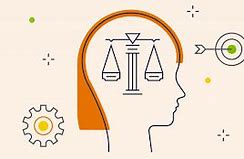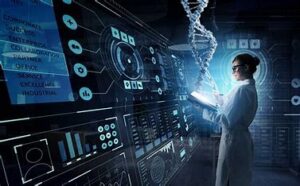Technology continues to reshape our world, infiltrating every aspect of our lives, from our daily routines to global systems. As the barriers between the digital and physical realms blur, the ethical implications of technology become ever more pressing. In an age where technology holds immense power and influence, it is paramount to critically examine the ethical considerations that arise. We must scrutinize the boundaries, consequences, and responsibilities that emerge as technology intersects with humanity.
 The Power and Boundaries of Technology
The Power and Boundaries of Technology
With breathtaking advancements, technology has become an unparalleled force for societal transformation. However, as technology evolves at an unprecedented pace, defining its boundaries becomes increasingly complex. From artificial intelligence and biotechnology to social media and big data, technology permeates society, raising ethical questions that demand our attention.
One crucial aspect to consider is privacy. In a world where personal information is increasingly digitized, questions emerge regarding the collection, use, and protection of individuals’ data. How do we balance the convenience and efficiency technology provides with the preservation of privacy rights? And who should determine the limits of data usage and surveillance?
The Consequences of Technological Progress
As technology advances, it brings about both positive and negative consequences that ripple through society. Automation, for instance, promises increased efficiency and economic growth but also raises concerns about job displacement and inequality. The proliferation of social media connects us, enabling new forms of self-expression and activism, but also contributes to the spread of misinformation, cyberbullying, and the erosion of privacy.
Furthermore, technology’s environmental impact cannot be ignored. The extraction of resources for electronics, the energy consumption of data centers, and the disposal of e-waste all contribute to environmental degradation. We must consider the ethical implications of our technological choices and strive for sustainable solutions that minimize harm to the planet.
Responsibility in the Digital Age
As technology influences our social, political, and economic landscape, we must address the responsibilities it places on corporations, governments, and individuals. The decisions made in the realms of technology have far-reaching consequences, requiring a thoughtful examination of ethics and a focus on human-centered values.
Corporations developing and implementing technology must consider the potential impacts on society, prioritizing transparency and accountability. Governments play a crucial role in ensuring ethical standards are upheld, safeguarding against biases, discrimination, and the erosion of civil liberties. Additionally, individuals must become more conscious consumers of technology, demanding ethical practices and considering the implications of their choices on a personal and societal level.
Balancing Innovation and Humanity
As we navigate the ethical dimensions of technology, it is essential to strike a delicate balance between innovation and humanity. Technological progress should not be hindered, but it must be guided by empathy, inclusivity, and respect for human rights. We must harness technology’s potential to address societal challenges and promote equitable outcomes while guarding against its unintended consequences.
To achieve this, interdisciplinary approaches are vital. By engaging diverse voices, including ethicists, technologists, policymakers, sociologists, and philosophers, we can identify and navigate the ethical complexities that arise. Collaboration across sectors will enable us to analyze the potential consequences of technology on our shared values and collectively steer its trajectory towards a more ethical future.
A Call for Ethical Reflection
The intertwining of technology and humanity demands that we embark on a continuous journey of ethical reflection. It is our responsibility to critically examine the consequences and consider the ethical implications of technological progress at every level. Only through these deliberate and thoughtful discussions can we ensure that the advancement of technology aligns with our collective values, ultimately shaping a society grounded in ethics and equality.
As we embrace the potential of technology, let us do so with a wary eye and a commitment to humanity. Together, we can pave the way towards a future where technology serves as a force for good, enhancing our lives while upholding the ethical foundations that underpin our society.


 The Dilemma of Technological Progress
The Dilemma of Technological Progress